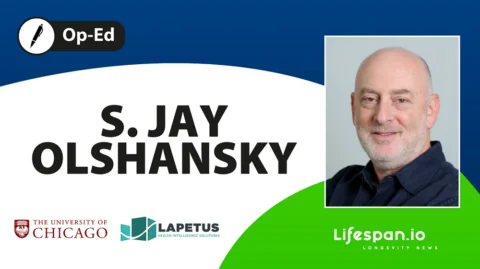S. Jay Olshansky received his Ph.D. in Sociology at the University of Chicago in 1984. He is a Professor in the School of Public Health at the University of Illinois at Chicago, Research Associate at the Center on Aging at the University of Chicago and Chief Scientist at Lapetus Solutions, Inc. -- a company that he co-founded. The focus of his research is on estimates of the upper limits to human longevity, exploring the health and public policy implications associated with individual and population aging, forecasts of the size, survival, and age structure of the population, pursuit of the scientific means to slow aging in people (The Longevity Dividend), and global implications of the re-emergence of infectious and parasitic diseases. During the last thirty five years, Dr. Olshansky has been working with colleagues in the biological sciences to develop the modern "biodemographic paradigm" of mortality – an effort to understand the biological nature of the survival and dying out processes of living organisms. Dr. Olshansky is the first author of The Quest for Immortality: Science at the Frontiers of Aging (Norton, 2001); A Measured Breath of Life (2013); The Rise of Generians (2020); Pursuing Wealthspan (2020); and co-editor of Aging: The Longevity Dividend (Cold Spring Harbor Laboratory Press, 2015). Dr. Olshansky's recent work is focused on linking the scientific study of aging with investments in longevity and mortality related products. Dr. Olshansky is a Board member, American Federation of Aging Research (AFAR) and he served on the Board of Scientific Advisors at PepsiCo. In 2016, Dr. Olshansky was honored with the Donald P. Kent Award from the Gerontological Society of America, the Irving S. Wright Award from the American Federation for Aging Research, he was named a Next Avenue Influencer in Aging; and in 2017 he received the Alvar Svanborg Award. Dr. Olshansky received the Glenn Award from the Glenn Foundation for Medical Research in 2018.
Related Organizations
Articles from this author
January 20, 2025
How long can people live? This is not just a foundational question in science. The answer has important public policy implications and is of interest to us all. Recent scientific evidence has revealed the answer, so what’s next in humanity’s never-ending battle against disease and the persistent ravages of aging? Larger increases in lifespan not...


